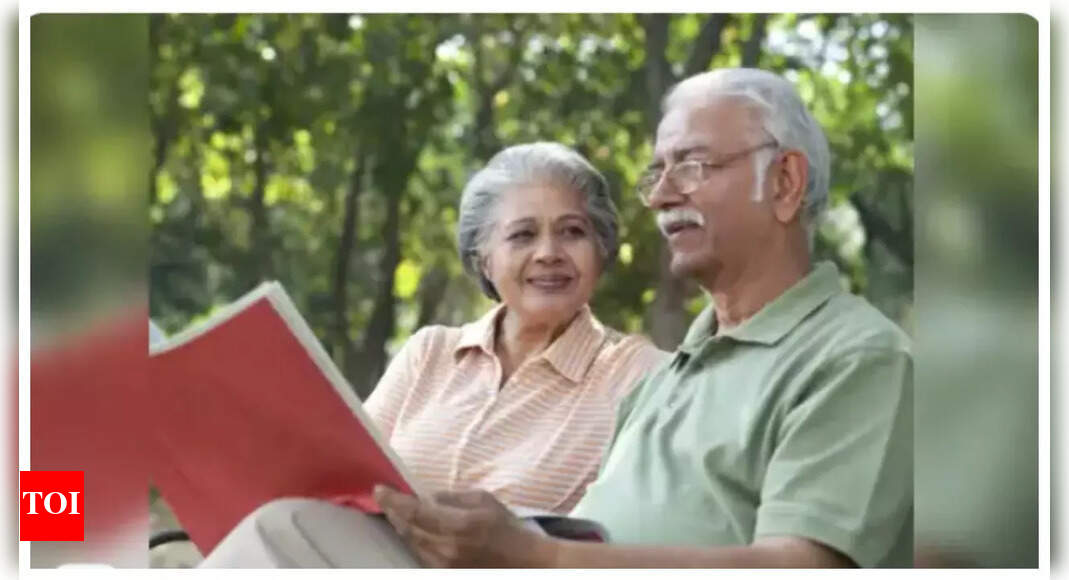Health
Experts Urge Awareness and Early Detection of Alzheimer’s in Bihar

Alzheimer’s disease is rapidly increasing in Bihar, with an estimated 200,000 individuals over the age of sixty currently affected. This surge is part of a global trend linked to rising life expectancy, leading to projections that India will have 18 million cases of Alzheimer’s by 2050. Experts emphasize the urgent need for enhanced awareness and early detection strategies to address this growing public health challenge.
The increase in Alzheimer’s cases in Bihar highlights a pressing need for both medical and community interventions. Although modern medicine does not yet offer a definitive cure, there is significant interest in alternative therapies. Ayurvedic treatments, particularly Brahmi and Panchakarma, have shown promise in enhancing memory and cognitive functions. These holistic approaches may provide valuable support in managing and potentially preventing the disease.
Understanding Alzheimer’s in the Context of Bihar
The rise in Alzheimer’s cases in Bihar is reflective of broader demographic shifts. As life expectancy increases, the likelihood of developing age-related conditions, including Alzheimer’s, also rises. Local healthcare professionals stress that early detection is critical. Identifying symptoms early can lead to better management of the disease and improve the quality of life for patients and their families.
Healthcare systems in Bihar face challenges, including limited access to diagnostic resources and a lack of awareness among the population about the signs of Alzheimer’s. Educational initiatives targeting both healthcare providers and the general public are essential for fostering a better understanding of the disease. Workshops and outreach programs can help demystify Alzheimer’s, encourage families to seek help sooner, and reduce the stigma associated with the condition.
The Role of Ayurvedic Medicine
In response to the growing need for effective management strategies, many are turning to Ayurvedic medicine as a complementary approach. Treatments such as Brahmi, known for its cognitive enhancing properties, and Panchakarma, a detoxification process, are gaining traction. While these treatments do not provide a cure, some practitioners assert that they can improve cognitive function and overall well-being in patients.
Research into the efficacy of Ayurvedic treatments for Alzheimer’s is still in its early stages, but preliminary findings suggest they may offer supportive care options. This interest in integrating traditional medicine with modern approaches reflects a broader trend towards holistic health practices.
The collaboration between modern medicine and traditional therapies could yield new insights into managing Alzheimer’s. As awareness grows, it is vital that families and healthcare providers work together to explore all available options, ensuring that patients receive comprehensive care.
The rising incidence of Alzheimer’s in Bihar serves as a wake-up call for policymakers, healthcare providers, and communities. By prioritizing awareness, early detection, and inclusive treatment strategies, stakeholders can work towards mitigating the impact of this complex and challenging disease.
-

 World4 months ago
World4 months agoSBI Announces QIP Floor Price at ₹811.05 Per Share
-

 Lifestyle4 months ago
Lifestyle4 months agoCept Unveils ₹3.1 Crore Urban Mobility Plan for Sustainable Growth
-

 Science3 months ago
Science3 months agoNew Blood Group Discovered in South Indian Woman at Rotary Centre
-

 World4 months ago
World4 months agoTorrential Rains Cause Flash Flooding in New York and New Jersey
-

 Sports3 months ago
Sports3 months agoBroad Advocates for Bowling Change Ahead of Final Test Against India
-

 Top Stories4 months ago
Top Stories4 months agoKonkani Cultural Organisation to Host Pearl Jubilee in Abu Dhabi
-

 Science4 months ago
Science4 months agoNothing Headphone 1 Review: A Bold Contender in Audio Design
-

 Top Stories4 months ago
Top Stories4 months agoAir India Crash Investigation Highlights Boeing Fuel Switch Concerns
-

 Sports3 months ago
Sports3 months agoCristian Totti Retires at 19: Pressure of Fame Takes Toll
-

 Business4 months ago
Business4 months agoIndian Stock Market Rebounds: Sensex and Nifty Rise After Four-Day Decline
-

 Politics4 months ago
Politics4 months agoAbandoned Doberman Finds New Home After Journey to Prague
-

 Top Stories4 months ago
Top Stories4 months agoPatna Bank Manager Abhishek Varun Found Dead in Well









